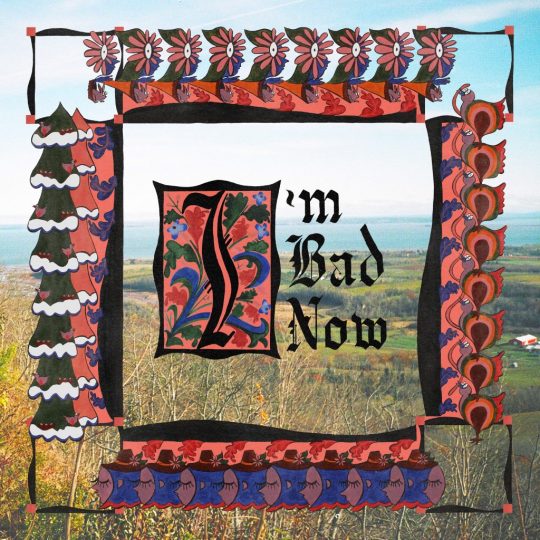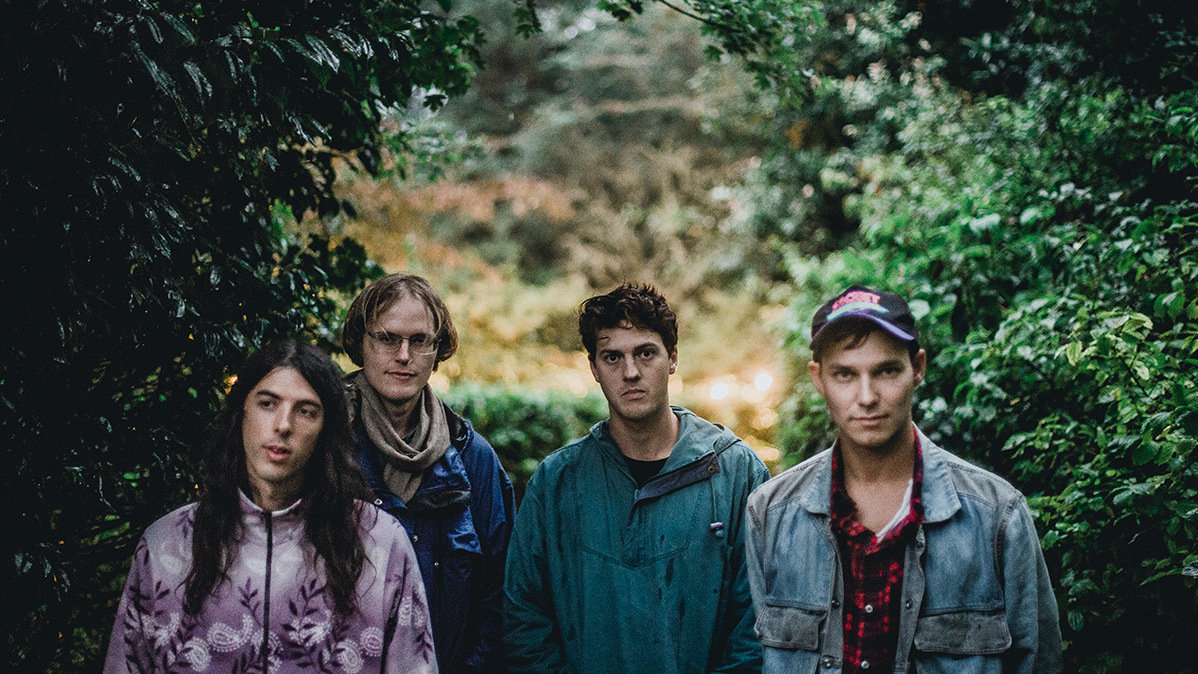Story by Conor Hudnut
photo by Matthew Parri Thomas from NPR
“I’m Bad Now,” the junior album from Canadian group Nap Eyes, is an album of self-exploration. In the album frontman Nigel Chapman navigates his struggle to find meaning and purpose. As he so bluntly expresses in the album’s opening track “Everytime the Feeling,” “Oh I can’t tell you what’s worse; / The meaninglessness or the negative meaning / But I figured out a way / To get on with my life and to keep on dreaming.”
Each song off of ”I’m Bad Now” seems to be a meditation. In “Roses” Chapman charts his struggle to find meaning in other people, in the titular track “I’m Bad” he sings that “purposeless haunts everyone.” The album is daring, and it’s hard to not identify with Chapman’s tongue in cheek lyrics.
I sat down with Chapman before his show at the new venue Elsewhere in Brooklyn to discuss “I’m Bad Now,” meditation, and his songwriting process.
I’d love to know about the name of the album, “I’m Bad Now.” It’s a very bold declaration.
It’s definitely tongue in cheek, at some level. Seamus, our drummer, was the creator of the name. He had been saying it for some time. At first we all thought it was a bit strange, but it really started to grow on everybody. I like the idea that it expresses, and I like affirming any kind of tendencies.
It’s a whole conversation topic, being bad is either self defined or defined by others. I think in my cases, and probably many people’s cases, you have some self reproach in your psyche. Instead of being the one that gets yelled at by your super-ego, or your more self-righteous self, you then make the predominate self the one that’s bad. But it’s mostly just a silly name.

How did your friends and family respond to the name?
I don’t know, I think everyone took it pretty much in stride. They’re used to not having too many questions about the creative details of our work, but they mostly laughed and thought it was funny.
Are you guys pretty collaborative with your songwriting? Is it mostly you?
For the most part, everything you hear on the records that anyone does, they created their part. So usually I’ll write some lyrics or a melody, and I’ll bring it to the band. Seamus, Josh, and Brad are all pretty intuitive musicians, so we all kind of make the song together. That can change what I do, I usually don’t have an arrangement that I hear in my mind very clearly. But the others usually have a much clearer idea how to mold it sonically. In that way the collaboration really helps.
I read you guys all live pretty far apart. Is that ever an issue?
Yeah, basically the situation is that they all live in Montreal, and I’m still in Halifax where we grew up. That’s about a 12 hour drive. So usually when we start a tour I’ll drive that first drive, I drive the minivan alone. And from there we’ll start the tour.
Do you guys all know each other from growing up?
We all first met in high school, I first met Seamus, then Brad, then Josh. We all got to know each other gradually over a few years, and then in about 2009 we really started to get closer. And then the band came together in 2011.
Do you think you’d ever make the move?
I will probably move someday, but I also like it out there. My home life is such a big part of my life, and especially with making noise I really need my space. It’s harder to find that space in a big city, but maybe one day. Of course that also counts on finances and everything.
I loved that in “Follow Me Down” you mention you were listening to a lot of classical Indian Raga, where did you find that music?
I love classical Indian music, but I’m by no means a great connoisseur in it, so I wouldn’t want to suggest it that way. Since I was younger I’ve been listening to a lot of Ravi Shankar, and there’s a few other sitar players I know. Not too many, but a few. One of the more sitar players I love is named Shavi Parvez. It’s really awesome music, so different than western music. It’s a beautiful sound and form.
Do you draw any inspiration from it?
Yeah, I think so. Different kinds of music do different things, and I think the field of music that we’re in is quite focused on some song format with some lyrics, stanza style with our own variations and spins on that. Other music, like classic Indian music, it often takes quite a long time from a slow elaboration of a basic musical theme, and making it more complex. This can be a really nice way to just listen and zone into something. There’s a lot of bending of notes as well. I take a lot of influence from starting things slowly, and gradually building it upwards. I often have a tendency to rush.
Do you meditate?
I try to sometimes! I really like practicing Tai Chi, it’s one of my favorite things. That’s definitely a form of meditation – a space where you focus on breathing, but you’re also moving.
How did you get into that?
I used to practice karate, I was never very good but I did that for a few years. I think martial arts are so cool. Something that’s nice about Tai Chi, and one of the obstacles for my never identifying very deeply with karate or the other fast martial arts is that it didn’t suit my body to try to be doing fast kicks from day one. I really like how in Tai Chi you learn each technique so slowly, you don’t have to rush anything.
Are you into philosophy, you seem to mention it quite a bit in your music.
Yeah, I think so. At least in the sense that I think it helps to have some intellectual framework for why everything goes on the way that it does, and where things come from. One important thing about philosophy is that you need to be able to connect it down into the core of your life, it can’t be too academic. That’s not a lesson that I have earned very convincingly, but it’s a constant. Ideas are one thing, you should try to grasp them, but you have to always pull them into a down to earth groundedness. That’s one of the biggest dangers in the world, you can’t fall in love with ideas that don’t connect to the grey areas of the real world. That can lead you into some insane ideologies.

